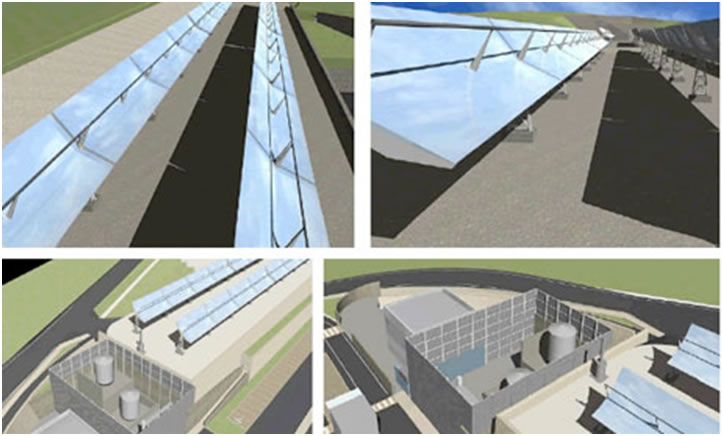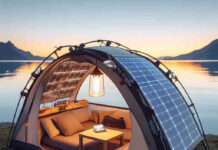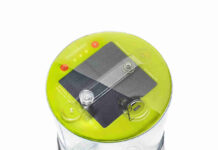
As part of the High-Performance Solar Thermal Power research project sponsored by the German Federal Ministry for the Environment, Nature Conservation and Nuclear Safety, Siemens together with German partner companies is to build a power plant test facility operating with molten salt as heat transfer medium.
The partner companies include the German Aerospace Center (DLR), K+S AG, Senior Berghöfer GmbH and Steinmüller Engineering GmbH. The technology is to be tested and optimized over a period of three years on the premises of the University of Evora, which is located approximately 130 kilometers southeast of Lisbon, Portugal. The site and the plant infrastructure will be made available through an agreement with the Portuguese utility Energias de Portugal’s (EdP) innovation unit, EDP Inovação.
The aim of the research project led by Siemens is to enhance the economy and reliability of parabolic-trough power plants. This type of solar thermal plant concentrates sunlight using parabolic mirrors on a receiver tube containing a heat transfer medium. Whereas today’s commercial parabolic-trough power plants use thermo oils as heat transfer medium allowing continuous operation at a temperature as high as 400°C, the 300-meter-long test loop is to be operated using molten salt at temperatures above 500°C. The steam at a higher temperature thus produced will enable more efficient operation of the steam turbine for power generation.
The potential offered by different types of salt is to be investigated at the test facility equipped with receiver tubes made by Archimede Solar Energy (ASE), a company in which Siemens holds a 45 percent stake. The new salts will include not only a refined form of the solar salts customarily used to date but also salts of a different composition. One of the challenges involved in the development of new salts is to find media with a low melting point. The potential risk of freezing in the systems carrying the salt and heat losses can thus be significantly reduced. The aim of the test facility is therefore to achieve enhanced salt melts, an adapted plant design and suitable operating strategies.
Today, molten salt is already being used as the heat transfer medium at the Priolo Gargallo demonstration power plant in Sicily, a plant equipped also with receiver tubes manufactured by ASE.
Components for solar thermal power plants are part of Siemens’ Environmental Portfolio. In fiscal 2010, revenue from the Portfolio totaled about EUR 28 billion, making Siemens the world’s largest supplier of ecofriendly technologies. In the same period, our products and solutions enabled customers to reduce their carbon dioxide (CO2) emissions by 270 million tons, an amount equal to the total annual CO2emissions of the megacities Hong Kong, London, New York, Tokyo, Delhi and Singapore.




Hey, just reckoned I would tell you that your blog isn’t really showing correct on explorer 4. Regardless, keep up the nice job !!